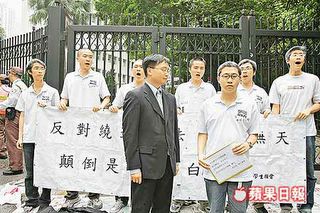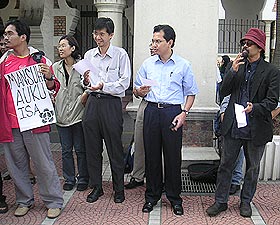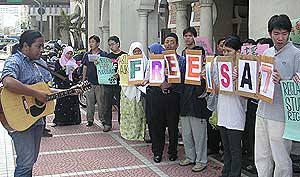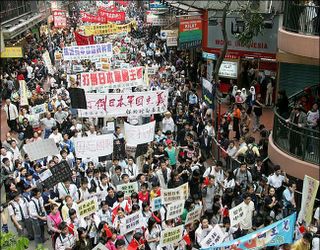Jailed Students Suffering from Deteriorating Health
The All Burma Federation of Student Unions provides us with the grim picture of how the military junta of Burma relates with the student leaders the latter has detained and continually neglected in prison.
Please read the statement that the ABFSU Foreign Affairs Committee has released last April 25.
Student Political Prisoners in a number of prisons in Burma are badly suffering from deteriorating health, because of poor prison conditions, poor medical treatment and the prolonged length of stay in the prisons. Since all Student Political Prisoners are not allowed to read or write, according to prison rules and some are systematically isolated from the outside world, they become seriously depressed and incur other health problems. This is particularly in the case of those who were transferred to prisons quite a distance away from their homes and their families.
A leading student in the 1996 student demonstration, Ye Kyaw Swa, is one who has been reported as being suffering from mental health problems. This has been caused by the serious depressive state in Myingyan prison, in upper Burma. He was sentenced to 19 years imprisonment and hasn't been provided with adequate medical treatment, even though he has been suffering from serious depression, since 2004. Another student, Thet Naung Soe, who made individual protests in front of Rangoon City Hall, in 2002, was also suffering from mental health problems and skin diseases, according to the report. Kyaw Linn Htun, who was arrested in 2004 for student union activism, and is now in Insein prison, is also reported to be suffering from severe depression. The three have been denied adequate medical treatment, even at the behest of their friends and families to the prison authority.
Thet Win Aung, a leading member of the ABFSU, Myo Min Zaw, a leading student in the 1998 student demonstrations and Nay Linn Soe, a union activist, were all reported to be suffering serious mental health problems. Many other students are also suffering from skin diseases, malaria, and dysentery, in prisons.
Min Naing, In Charge of the Foreign Affairs Committee of the All Burma Federation of Student Unions, said, “We are seriously concerned about the situation of those students, who have been imprisoned because of their commitment to, and the best interests of, their country. They peacefully practiced civil rights and citizen rights, for the cause of their country. They are not criminals. They were wrongly arrested. The continued arrest of such students is a kind of treason and a danger to the future of Burma. This is especially the case of students who love their country and have done their best for what he or she thought for the nation. All Student Political Prisoners have to be released if the military government really wants a national reconciliation and a democratization process in the country.”






